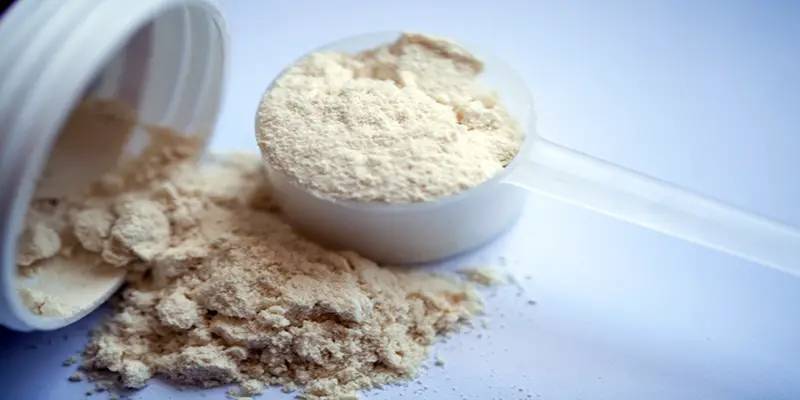Tuna, cherished by seafood enthusiasts worldwide, has earned its place on the plate in various delightful forms – from sushi rolls to sandwiches. Beyond its delectable taste, tuna offers a treasure trove of nutrients. This article delves into tuna's nutritional content and health advantages, enabling you to make informed choices when incorporating this flavorful fish into your meals.
Tuna in a Nutshell
Tuna's Versatility:
Tuna, a member of the mackerel family, comes in several varieties, including Albacore, Yellowfin, and Skipjack. Its universal appeal has made it a staple in diverse culinary traditions, ranging from Japanese sushi to Italian pasta dishes.
An Enriched History:
Throughout history, tuna has played a crucial role as a primary food source and an economic asset. Its journey from the ocean depths to our dining tables is a testament to human ingenuity and culinary innovation.
Tuna Nutrition Profile:
Let's dive into the tuna world and uncover why it's a fantastic meal choice.
Full of Good Stuff:
Imagine tuna as a secret treasure chest of goodies that your body loves. When you enjoy a 3.5-ounce (100-gram) serving of tuna, you're treating yourself to some amazing benefits:
Protein Power:
Packed with about 30 grams of protein, tuna is like a muscle magician, helping your muscles grow and repair. It's also great for keeping you full, which is super handy if you're watching your weight.
Healthy Fats:
Tuna is brimming with omega-3 fatty acids. These are the fats that make your heart do a happy dance, and your brain feel sharp. They're fantastic for reducing the risk of heart issues, soothing inflammation, and giving your brain a healthy boost.
Vitamins and Minerals Galore:
Tuna is a powerhouse of essential nutrients. It delivers vitamin D for strong bones and a robust immune system, B vitamins like niacin and riboflavin to keep your energy buzzing and your nerves in top shape, and a healthy hit of vitamin B12, which your nerves love. And let's remember minerals like selenium, a mighty defender against harm, and potassium, which keeps your muscles and fluids in harmony.
Low on Carbs:
Tuna is your friend for those keeping an eye on carb intake. It's low in carbs, so no worries about overloading on those sneaky sugars.
Omega-3 Fatty Acids:
Tuna is a superstar when it comes to omega-3 fatty acids. These special fats are a health bonanza. Here's the scoop:
Heart Health:
Omega-3s, particularly EPA and DHA, are your heart's heroes. They help lower blood pressure, get your cholesterol on the right track, and keep your triglycerides in line. This is all excellent news for your heart's well-being.
Brain Booster:
DHA, an omega-3 found in tuna, is like brain fuel. It enhances brain function, making you sharper, more precise, and better at remembering things.
Anti-Inflammatory All-Stars:
Omega-3s are your body's inflammation busters. They're like the cool firefighters quelling the flames of prolonged inflammation, keeping you feeling great.

Health Benefits of Tuna
Heart Health:
The omega-3s in tuna may reduce triglycerides, blood pressure, and the risk of heart disease. Regular consumption can contribute to a healthier heart.
Weight Management:
Tuna's high protein content promotes satiety, aiding in weight management and muscle maintenance.
Brain Health:
The function of the brain requires omega-3 fatty acids and mood regulation, making tuna a brain-boosting food.
Bone Health:
Tuna's vitamin D and calcium content are beneficial for maintaining strong bones.
Skin Health:
The vitamins and antioxidants in tuna support healthy skin, keeping it glowing and radiant.
Choosing the Right Tuna
When it comes to picking the perfect tuna, there are a few key things to keep in mind:
Sustainability Matters:
Go for tuna that's sustainably sourced. This choice supports fishing practices that are kinder to the ocean and help preserve marine life and their habitats.
Canned vs. Fresh Tuna:
Weigh your options between the convenience of canned tuna and the freshness of its counterpart. Canned tuna is handy for quick meals, while fresh tuna offers a different taste and texture experience.
Mercury Levels:
Pay attention to the mercury levels in different types of tuna. Some varieties have higher levels than others. It's particularly important for pregnant women and children to opt for lower-mercury options to ensure safety and health.
Making the right choice in tuna impacts your meal's taste and affects your health and the environment. Choose wisely!

Tuna in Culinary Delights
Versatility in the Kitchen:
Tuna's versatility shines through in culinary creations, from spicy tuna rolls to refreshing tuna salads.
Recipes to Try:
Explore delicious recipes like Tuna Nicoise Salad and Tuna Avocado Sushi Rolls to savor tuna's delightful flavors at home.
Potential Risks and Precautions
Mercury Concerns:
While packed with health benefits, tuna comes with a caveat regarding mercury. Mercury contamination can be a concern in certain types of tuna. This heavy metal, if consumed in large amounts, can pose health risks, especially affecting the nervous system. Therefore, it's crucial to enjoy tuna but with a mindful approach.
Safe Consumption:
Eating tuna correctly is crucial, particularly for children and pregnant women more prone to mercury. The secret is to choose low-mercury tuna varieties and limit your consumption. In this way, you can enjoy all the health benefits of tuna without worrying too much about mercury. Just keep it balanced, and you can safely include tuna.
Conclusion: Tuna – A Nutrient-Packed Superfood
A Nutrient-Rich Treasure:
Tuna is not just a delicious seafood option; it's a nutrient-packed superfood loaded with protein, omega-3s, and essential vitamins and minerals. Make informed choices when enjoying tuna by considering its sustainability, type, and mercury levels. Explore the world of tuna in your kitchen and savor its flavors while reaping its many health benefits. Tuna is more than a meal; it's a journey into a world of nutrition and culinary delight.




